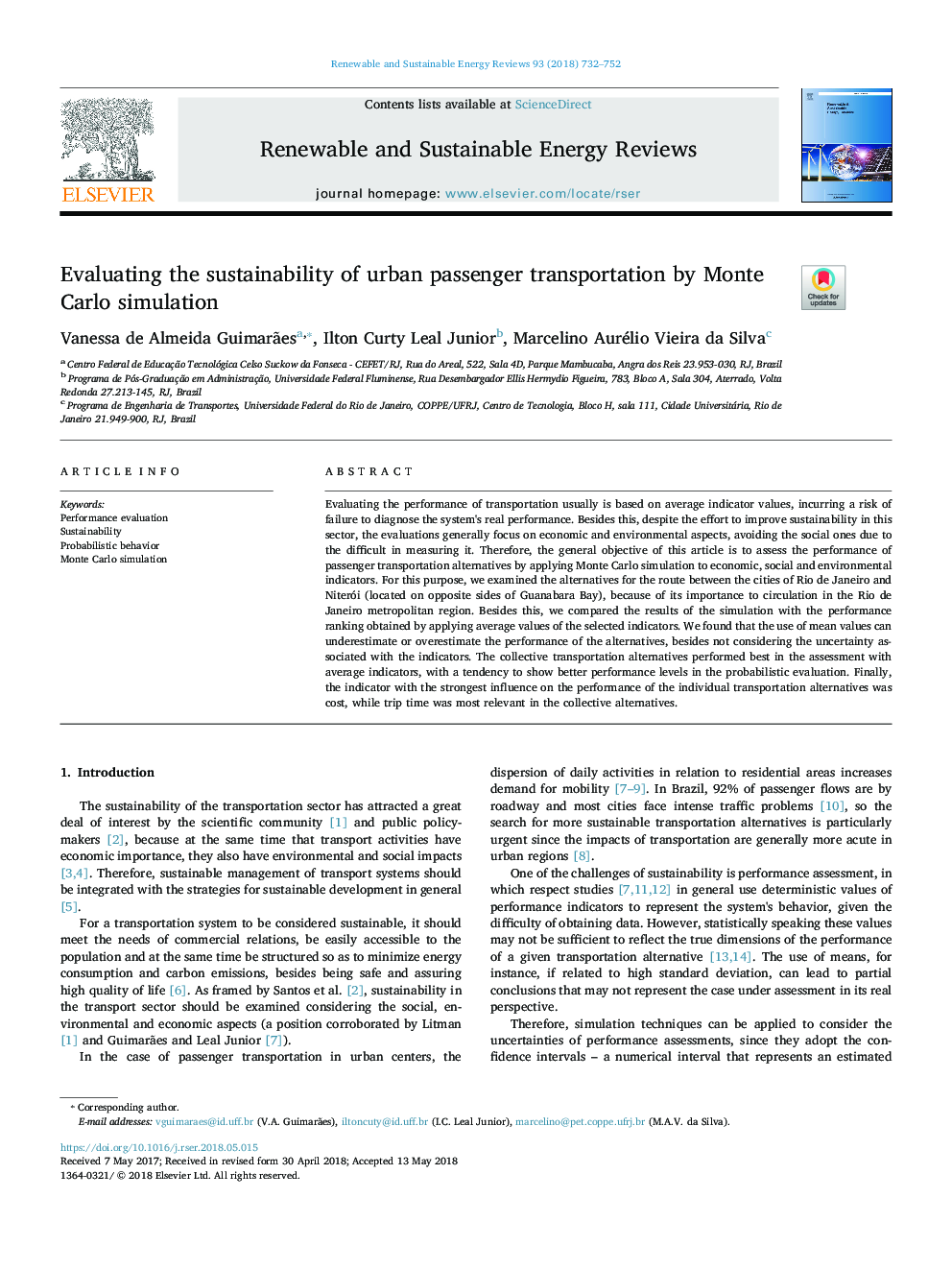| Article ID | Journal | Published Year | Pages | File Type |
|---|---|---|---|---|
| 8110793 | Renewable and Sustainable Energy Reviews | 2018 | 21 Pages |
Abstract
Evaluating the performance of transportation usually is based on average indicator values, incurring a risk of failure to diagnose the system's real performance. Besides this, despite the effort to improve sustainability in this sector, the evaluations generally focus on economic and environmental aspects, avoiding the social ones due to the difficult in measuring it. Therefore, the general objective of this article is to assess the performance of passenger transportation alternatives by applying Monte Carlo simulation to economic, social and environmental indicators. For this purpose, we examined the alternatives for the route between the cities of Rio de Janeiro and Niterói (located on opposite sides of Guanabara Bay), because of its importance to circulation in the Rio de Janeiro metropolitan region. Besides this, we compared the results of the simulation with the performance ranking obtained by applying average values of the selected indicators. We found that the use of mean values can underestimate or overestimate the performance of the alternatives, besides not considering the uncertainty associated with the indicators. The collective transportation alternatives performed best in the assessment with average indicators, with a tendency to show better performance levels in the probabilistic evaluation. Finally, the indicator with the strongest influence on the performance of the individual transportation alternatives was cost, while trip time was most relevant in the collective alternatives.
Related Topics
Physical Sciences and Engineering
Energy
Renewable Energy, Sustainability and the Environment
Authors
Vanessa de Almeida Guimarães, Ilton Curty Leal Junior, Marcelino Aurélio Vieira da Silva,
